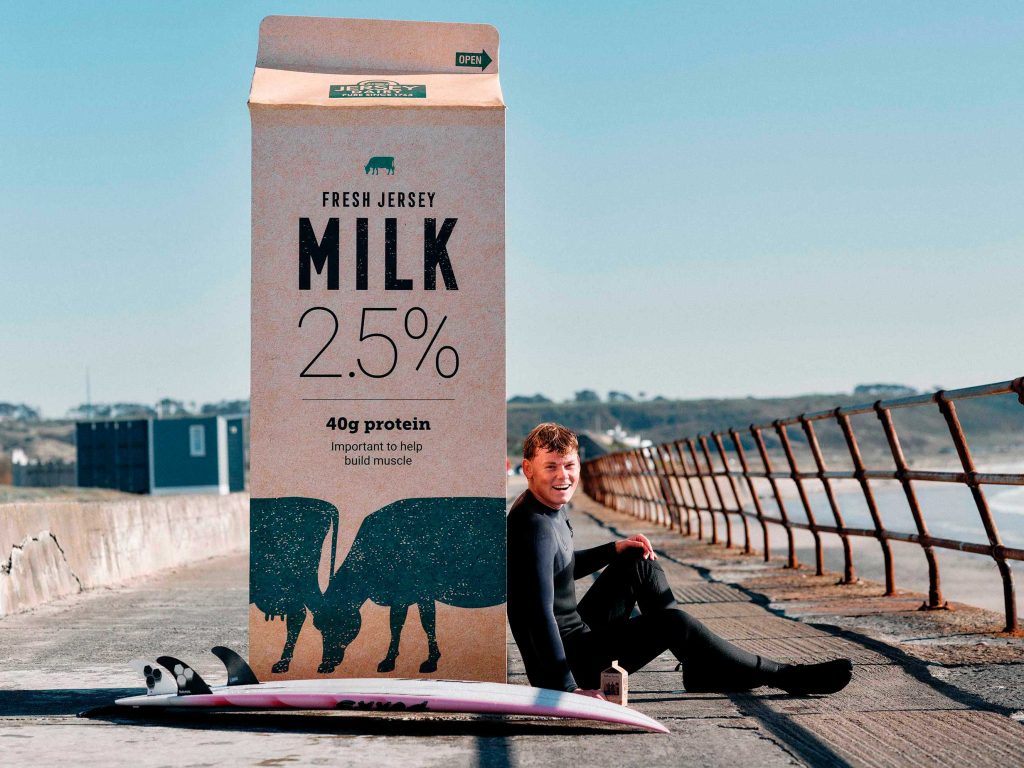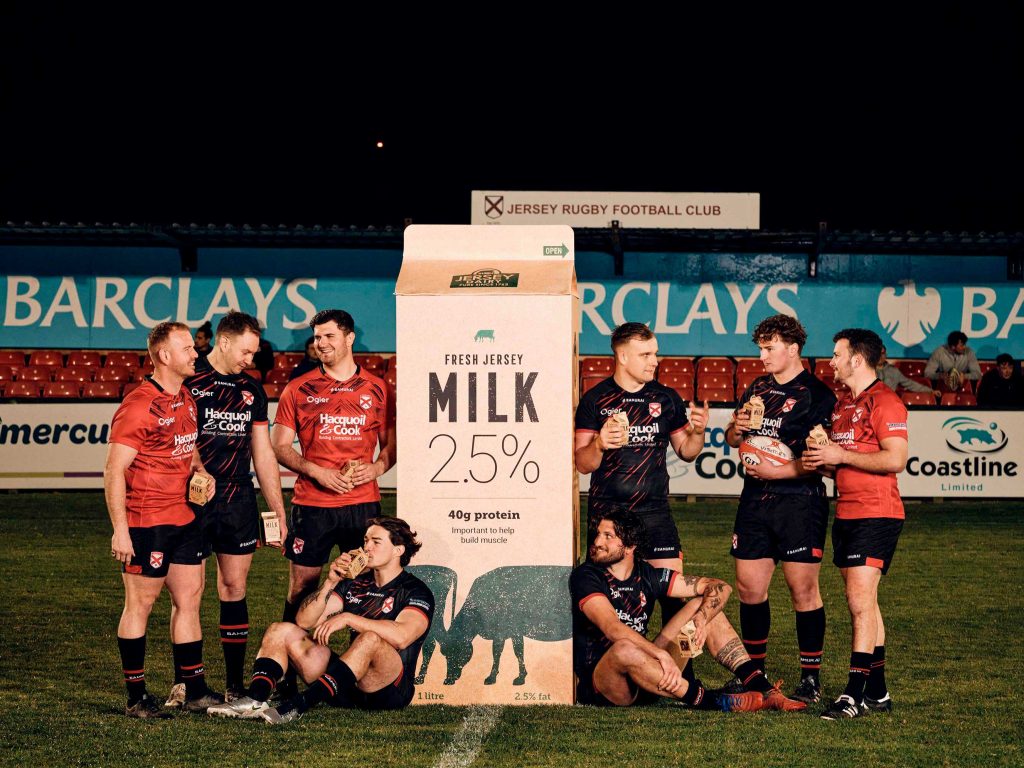Milk Cartons
The packaging used for our milk cartons is the iconic and original gable-top Pure-Pak® carton, manufactured by Elopak. Choosing Jersey milk in Pure-Pak® cartons, means that you are making a conscious choice to:
Reduce plastic
Plastic is traditionally made from fossil raw materials. By extracting these from the ground, greenhouse gases are introduced to the atmosphere, which otherwise would have been kept under ground. That is why we believe we should aim to stop using the finite, fossil resources and rather opt for renewable alternatives.
Jersey Dairy’s cartons contain a very thin layer of plastic (polymer) in order to protect them against moisture. These polymers are based on renewable resources; they are certified bio-circular polymers1, based on biological waste of vegetable origin.
In comparison to fossil-based raw materials, renewable alternatives are better for the environment, both in terms of resource depletion and carbon footprint2.
Care for our World’s resources
Our Jersey milk cartons are made from renewable, sustainably sourced materials, meaning materials that can naturally replenish over time.
As the packaging’s main raw material is derived from forests, we take responsible forest management seriously. Forests are naturally renewable since trees grow relatively quickly without human interference. However, forests are only renewable if they are managed responsibly. That’s where the FSC® label comes in; it matters for forests, people and wildlife. And you can be assured that our Jersey milk cartons are FSC® certified3.
Opt for a natural and low carbon packaging
Our Jersey milk is packaged in Pure-Pak® Natural Brown Board carton. This type of carton board is less processed compared to a traditional white Pure-Pak® carton, using less material. As a result, our Jersey milk packaging is a lighter4 and a lower carbon option2.

Recycling in Jersey
The Elopak cartons cannot be placed in the cardboard recycling system in Jersey because of the inner layer.
Below is a statement issued by Jersey Government following an investigation into the feasibility of recycling milk and juice cartons used in Jersey.
“Elopak (and other brands of cartons) are not currently recycled in Jersey for a number of reasons. The nearest recycling plant for cartons including Elopak is based in Halifax, England. At present this plant operates a closed-loop water-based process which allows the paperboard component to be separated from the polymers and aluminium from some of the cartons. The paperboard can then be turned into low-value recycled paper items such as cardboard and toilet rolls. The polymer/aluminium are then used in roofing tiles and cement. The plant in Halifax is very clear that some of the cartons or the separated waste such as the polymer/aluminium composite are then sent for energy recovery. In mainland UK, as opposed to Jersey, the preferred option would be to use this plant to send the packaging for recycling or energy recovery as those cartons would otherwise be sent for landfill for which they would be required to pay an expensive landfill tax. Environmentally the solutions offered by the plant in Halifax (either recycling or energy recovery) would be preferable to landfill for the UK. However, in Jersey we have to factor in the transportation emissions and the other associated financial and environmental costs.”
At this present time the better option for Jersey Dairy is to continue to send cartons to the energy from waste plant where the energy from all cartons is recovered. The ‘bottom ash’ from the energy from waste plant is sent to a specialist recovery plant in the UK where all metals, including aluminium, are recovered.
The recycling of food and drink cartons in Jersey requires the machinery of Government and as of now they have decided the better option for Jersey, from an environmental impact point of view, is to continue to send cartons to the energy from waste plant where the energy from all cartons is recovered.

Carton Composition (response Elopak)
“Pure-Pak® cartons are not marketed as ‘compostable’ or ‘biodegradable’. Biodegradable and compostable packaging biodegrade in certain conditions and may be made from fossil-fuel based materials. It is worth noting that biodegradable materials or plastics do not fully solve the littering problem either. These type pf plastics should be used when it is not possible to reduce, reuse or recycle, in line with the circular economy and waste hierarchy principles.”
The dairy industry in Jersey is committed to adopting good environmental practice in its operational and capital investment decisions and to operate at the highest levels of efficiency.
Jersey Dairy would dearly like to have a truly carbon neutral solution for milk packaging and we know Elopak and other carton manufacturers are chasing that “holy grail”.
Our brown board milk carton is a step in the right direction.
Jersey milk is a natural, nutritious & delicious locally produced product with excellent environmental and animal welfare credentials.
Ref.
1 ISCC Plus
2 Elopak DEEP tool, version 14, April 2024 comparing 1L milk carton with easy opening, white vs brown
3 FSC license FSC-C081801
4 Elopak specs
